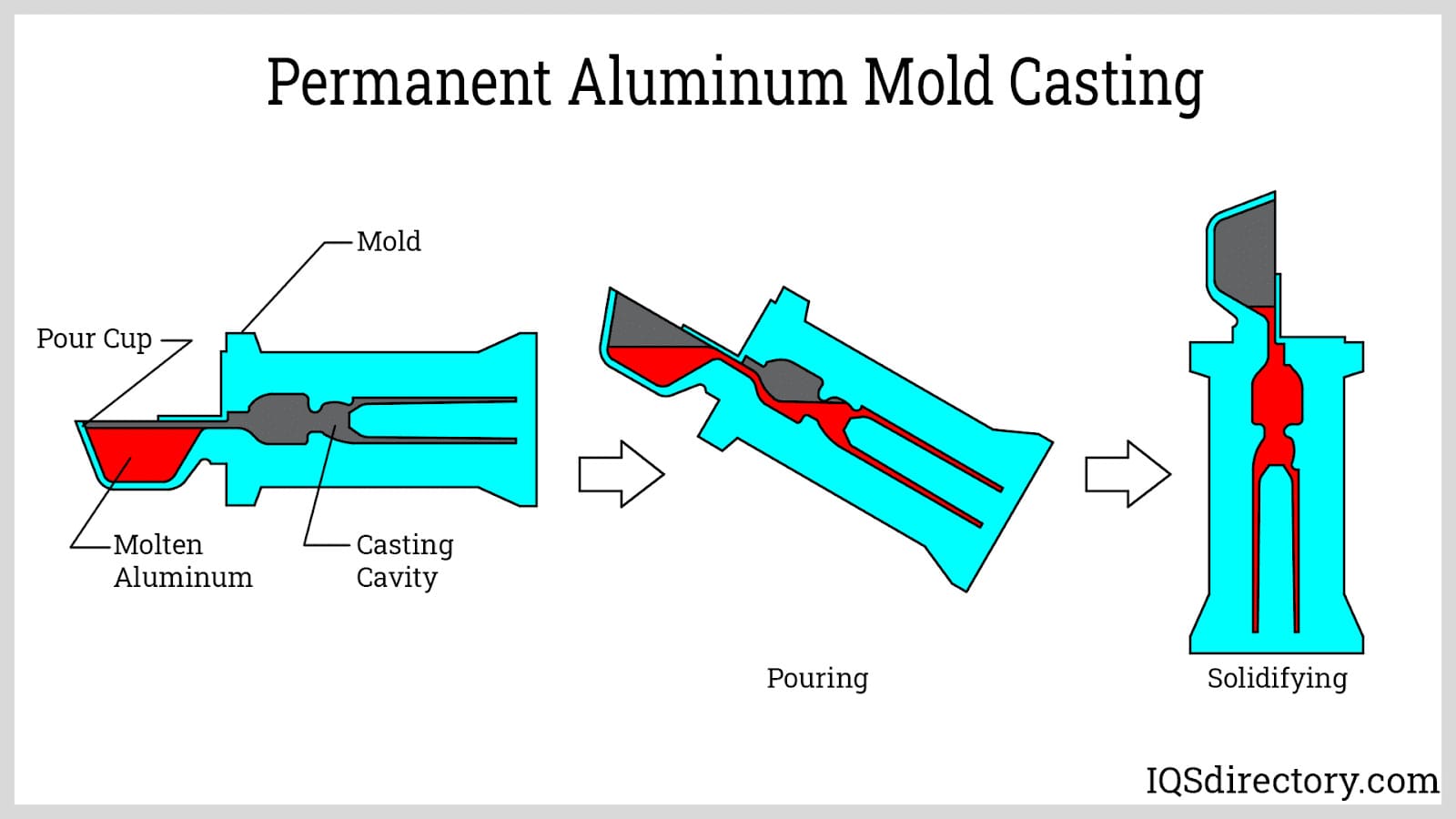The Best Guide To Alcast Company
The Best Guide To Alcast Company
Blog Article
Alcast Company Can Be Fun For Everyone
Table of ContentsAlcast Company Fundamentals ExplainedSome Known Details About Alcast Company Top Guidelines Of Alcast CompanyExcitement About Alcast CompanySome Known Details About Alcast Company Some Known Facts About Alcast Company.
Chemical Comparison of Cast Light weight aluminum Alloys Silicon advertises castability by decreasing the alloy's melting temperature level and enhancing fluidness throughout spreading. Additionally, silicon contributes to the alloy's strength and wear resistance, making it important in applications where sturdiness is critical, such as auto components and engine parts.It also enhances the machinability of the alloy, making it less complicated to refine into ended up items. In this way, iron adds to the total workability of aluminum alloys.
Manganese contributes to the toughness of aluminum alloys and enhances workability. Magnesium is a lightweight aspect that provides stamina and impact resistance to light weight aluminum alloys.
Indicators on Alcast Company You Need To Know
Zinc enhances the castability of aluminum alloys and helps control the solidification process during casting. It improves the alloy's strength and hardness.

The key thermal conductivity, tensile toughness, return toughness, and elongation vary. Amongst the above alloys, A356 has the greatest thermal conductivity, and A380 and ADC12 have the lowest.
An Unbiased View of Alcast Company

In precision spreading, 6063 is appropriate for applications where detailed geometries and premium surface area finishes are extremely important. Instances consist of telecommunication units, where the alloy's superior formability permits smooth and visually pleasing layouts while maintaining structural honesty. In a similar way, in the Lighting Solutions sector, precision-cast you can find out more 6063 parts create elegant and efficient lights components that require complex forms and good thermal performance.
It brings about a better surface area coating and better corrosion resistance in A360. Furthermore, the A360 displays remarkable prolongation, making it ideal for complex and thin-walled components. In precision casting applications, A360 is fit for markets such as Consumer Electronic Devices, Telecommunication, and Power Tools. Its boosted fluidity allows for intricate, high-precision parts like smart device coverings and interaction gadget housings.
Alcast Company Fundamentals Explained
Its unique properties make A360 a useful selection for precision spreading in these industries, boosting product durability and high quality. Light weight aluminum alloy 380, or A380, is a widely utilized spreading alloy with numerous distinctive attributes. It supplies excellent castability, making it a suitable selection for accuracy casting. A380 exhibits great fluidness when molten, ensuring elaborate and in-depth mold and mildews are precisely replicated.
In accuracy casting, light weight aluminum 413 radiates in the Consumer Electronic Devices and Power Devices markets. This alloy's premium corrosion resistance makes it an exceptional selection for exterior applications, guaranteeing durable, durable items in the mentioned industries.
All about Alcast Company
The light weight aluminum alloy you select will considerably affect both the casting procedure and the properties of the last product. Due to the fact that of this, you need to make your decision meticulously and take an enlightened approach.
Establishing the most appropriate light weight aluminum alloy for your application will suggest evaluating a vast selection of qualities. These relative alloy features follow the North American Pass Away Casting Association's standards, and we've divided them into two groups. The first classification addresses alloy attributes that influence the production procedure. The second covers features affecting the residential properties of the last product.
See This Report on Alcast Company
The alloy you choose for die spreading straight impacts numerous aspects of the spreading process, like exactly how very easy the alloy is to collaborate with and if it is vulnerable to casting problems. Warm breaking, additionally referred to as solidification splitting, is a typical die spreading issue for light weight aluminum alloys that can result in interior or surface-level tears or fractures.
Particular aluminum alloys are extra at risk to warm fracturing than others, and your choice ought to consider this. It can harm both the actors and the die, so you ought to look for alloys with high anti-soldering residential properties.
Corrosion resistance, which is currently a remarkable characteristic of aluminum, can vary substantially from alloy to alloy and is a vital particular to take into consideration relying on the ecological problems your product will be subjected to (aluminum metal casting). Put on resistance is an additional residential or commercial property typically sought in aluminum products and can set apart some alloys
Report this page